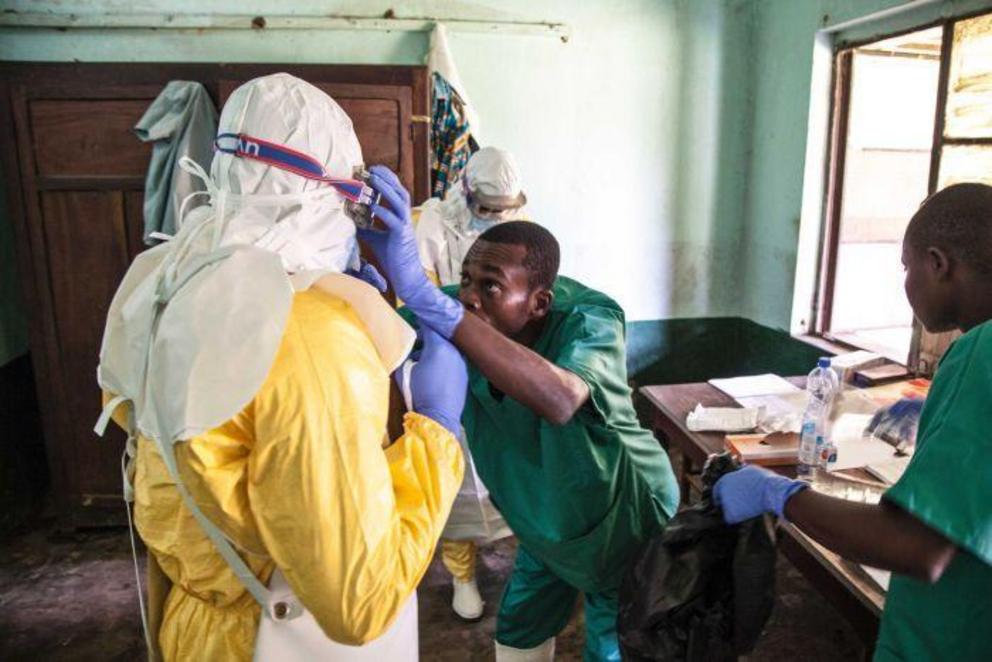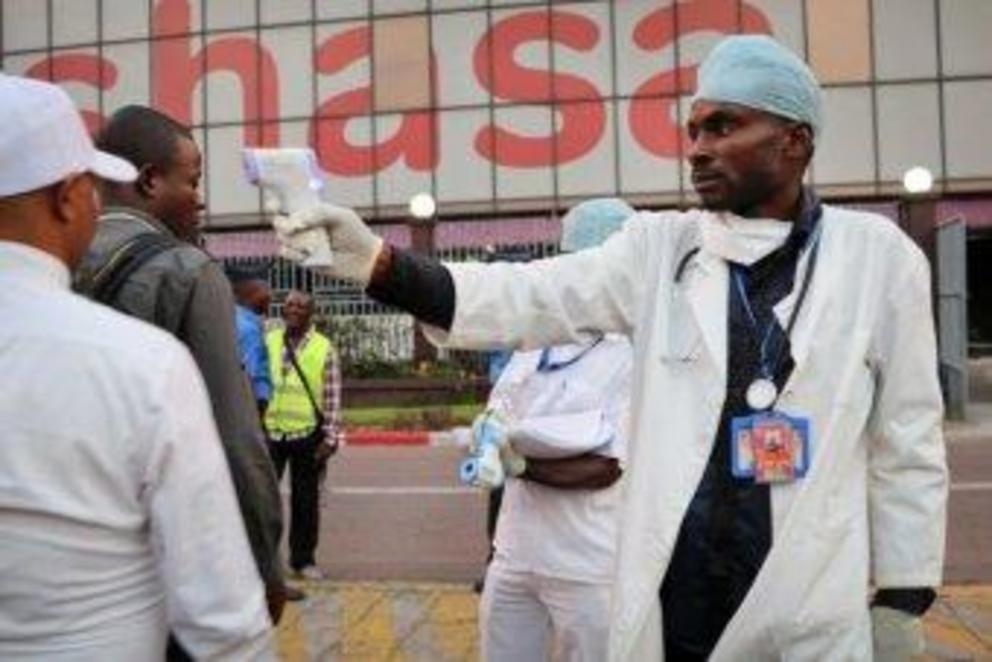Congo Ebola outbreak kills 44 as aid workers struggle to contain spread in conflict zone
A deadly Ebola outbreak in a conflict-hit area of the Democratic Republic of Congo (DRC) poses an "unprecedented" challenge to health workers trying to access victims and contain the disease, medical charities said.
Key points:
- Latest outbreak started just a week after another was declared to be over
- Longstanding conflict in the region has made people more susceptible to disease
- WHO are concerned an epidemic could break out in security blindspots
At least 44 people have died and 78 people have been infected in the Congo's tenth Ebola outbreak since the deadly virus was discovered in the 1970s, according to the World Health Organisation.
At least 1,500 people have been potentially exposed to the deadly virus in North Kivu province but the violence means officials cannot be sure if they have identified all the chains by which it is spreading in the east of the vast country.
"We don't know if we are having all transmission chains identified. We expect to see more cases as a result of earlier infections and these infections developing into illness," WHO spokesman Tarik Jasarevic told a news briefing in Geneva.
"The worst-case scenario is that we have these security blindspots where the epidemic could take hold that we don't know about," he said.
The latest outbreak started just a week after the country declared an end to a separate outbreak and marks the first time responders have had to work in an active conflict zone, where armed groups regularly kill and kidnap civilians.
"With Ebola, this situation is unprecedented. It will make the response longer and more expensive," said Michelle Gayer, director of emergency health for the International Rescue Committee (IRC), which is working to contain the outbreak.
 Ebola is gone from the DRC thanks to a very different response to the 2014 outbreak.
Ebola is gone from the DRC thanks to a very different response to the 2014 outbreak.
Ms Gayer said longstanding conflict in the region has made people more susceptible to disease because of poor sanitation and high levels of malnutrition and displacement, with many people now living in camps.
Treatment centres have been set up in towns that are violence free, but surveillance teams cannot access surrounding areas to check for cases, said Papys Lame of the Alliance for International Medical Action (ALIMA).
"Measures are in place to be able to manage it as best as possible despite the insecurity," he said.
The virus, which spreads via bodily fluids and causes vomiting, bleeding and diarrhoea, has already spread from its epicentre in North Kivu province to neighbouring Ituri province since the first cases were detected on August 1.
Two children have already died from the disease, and centres in Beni and Mangina were treating six children infected by the disease or suspected to be.
UNICEF said it had also identified 53 orphaned children who have lost their parents to Ebola.
"The impact of the disease on children is not limited to those who have been infected or suspected," Gianfranco Rotigliano, the UNICEF representative in Congo, said in a statement.
"Many children are faced with the illness or death of their parents and loved ones, while some children have lost large parts of their families and become isolated. These children urgently need our support".
The WHO is having to rely on local health workers in the "red zones" deemed too unsafe for its staff to enter, and has been unable to send in experts, regional emergencies director Ibrahima Soce Fall said.
Authorities are trying to negotiate access with the militia, the WHO director-general said earlier this week.
It has been difficult to raise support and awareness because the outbreak so closely followed another one, Mr Fall said.
"We mobilised very quickly the money needed to respond to the first outbreak, but now we are going back to the same donors and there can be this kind of fatigue," he said.
"It is really important for the international community to know that this outbreak is more complex."
Millions died in civil wars in eastern Congo from 1996 to 2003, but Ituri province had experienced relative peace until violence erupted again this year.
Ethnic rivalries and militia fighting throughout the country have been fanned by a breakdown of state authority since President Joseph Kabila refused to step down at the end of his mandate in 2016.

